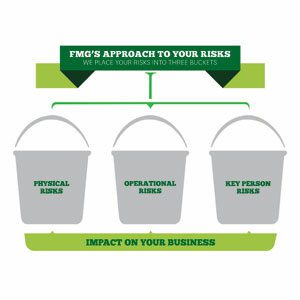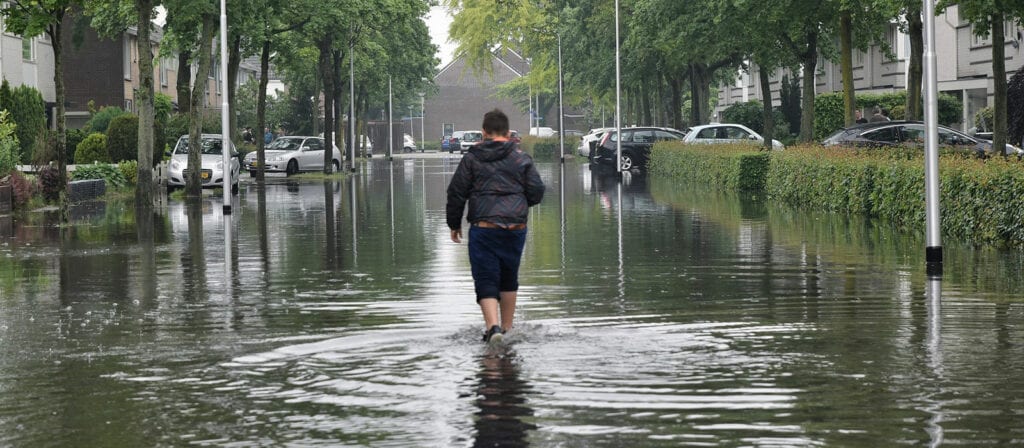After the event, FMG worked with Lincoln University of Canterbury to conduct a study on the impact of the storms and what could be learnt from it. An irrigator advice guide was produced free of charge for all farmers (regardless if they were existing clients) which had the key findings of ‘Point, Park, & Anchor’. The study identified this as the key preventive advice when there are strong winds or a storm coming. The best way to prevent the damage from these events is to ‘point’ the irrigator into the wind, ‘park’ it, and ‘anchor’ it down with pegs or large concrete blocks. FMG also began an industry partnership with Irrigation New Zealand to educate farmers on how to point, park and anchor their irrigators.
This has been very successful with no significant irrigator single losses since the 2013 event until September 2020 where, despite different wind conditions and the storm concentrating in northern Canterbury, irrigators that were pointed into the direction of the wind performed significantly better. The claims impact of this most recent event was still significantly less than the 2013 storm. Overall, the profitability of the irrigator policy has drastically improved meaning that it can stay affordable for farmers and growers. FMG and Irrigation New Zealand are continuing their partnership to help build the resilience of farmers, including through planned workshops and the production of a new guide relating to wind forecasting.
Risk education
FMG assists clients in understanding the risks they face and how to go through the risk management process. FMG’s ‘3 Bucket’ framework was developed to help clients evaluate and identify different types of risks their business faces. This includes physical (tangible risks), operational (legislative and compliance risks) and key person risks (injury, illness and life). Further work is being done to help clients understand what the major risks they face are and what their appetite is – based on industry type, scale of operation, geography, and the individual farmers. FMG has tailored this advice across multiple channels such as written reports, conversations and practical workshops to allow for different learning styles. FMG is currently working to provide resources and workshops to help clients understand their risk appetite and prepare risk registers for all risks, not just those that are insurable. As most of the businesses FMG insures are small-to-medium enterprises, they normally wouldn’t have access to this level of risk management advice.
Thermal imaging
Thermal imaging uses thermographic cameras to find electrical wiring with elevated temperatures in order to proactively identify issues that can’t be seen with the naked eye. FMG has established relationships with two thermal imaging professionals and offers it as a complementary service to its clients. During the 2019/20 financial year, FMG implemented thermal imaging at 353 different businesses and of those, 10% reported severe issues that were able to be resolved, preventing a serious loss. FMG continues to put resources into improving the thermal imaging process to improve the data collected from it and its reach to clients. Its ability to prevent losses and disruption makes it a worthwhile and cost-effective investment.
Farmstrong
Farmstrong is a non-commercial community give-back wellbeing programme that was founded by FMG and the Mental Health Foundation in 2015. The programme’s goal is to help farmers and growers across New Zealand live well to farm well. Farmstrong shares what farmers and growers can do to look after themselves and the people in their business, so they prevent injures, and perform well. Each year a random sample survey of ten behaviours is used as a benchmark to measure the effectiveness of the programme and the overall wellbeing of rural communities. This was recognised by the Government-owned Accident Compensation Corporation (ACC) who joined as a strategic partner in 2016. With on-going commitment from the key partners over the next five years, Farmstrong aims to extend its reach to influence the wellbeing of 107,000 people working in agriculture. This will be done with a range of different methods including wellbeing and injury prevention initiatives; further sharing of Farmstrong tools and information; and increased community support for farmers and growers to sustain new wellbeing habits.



